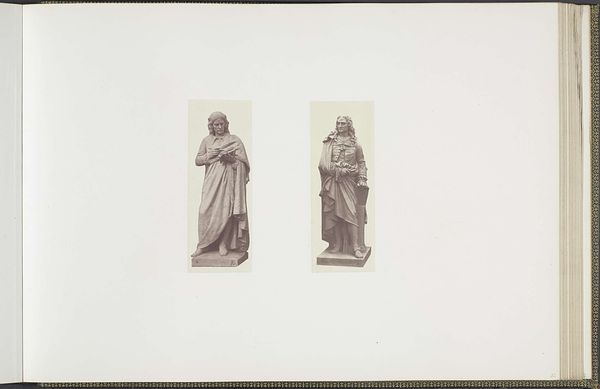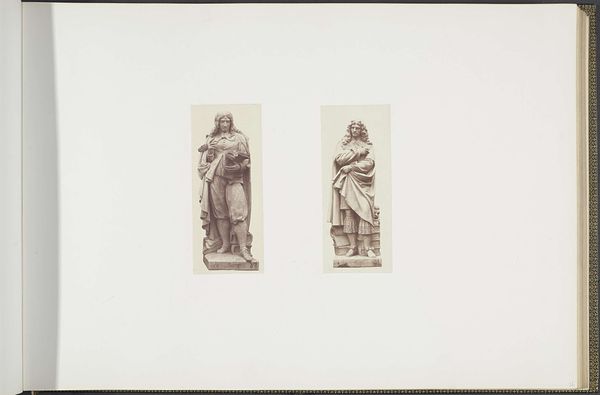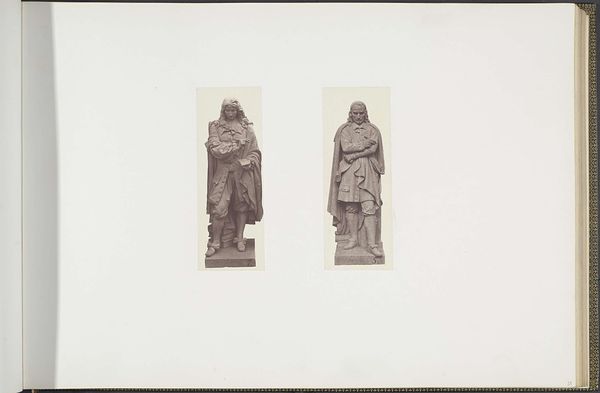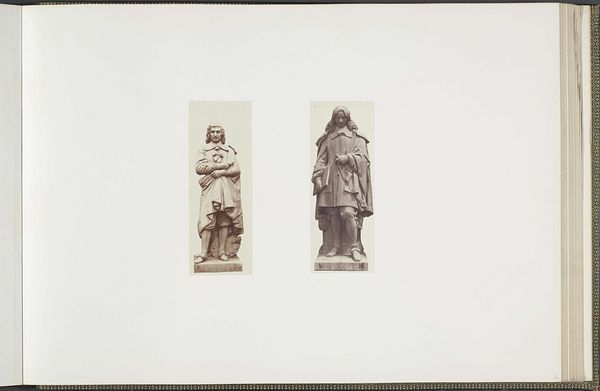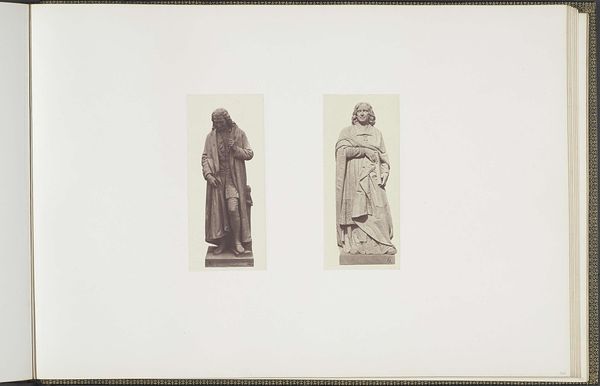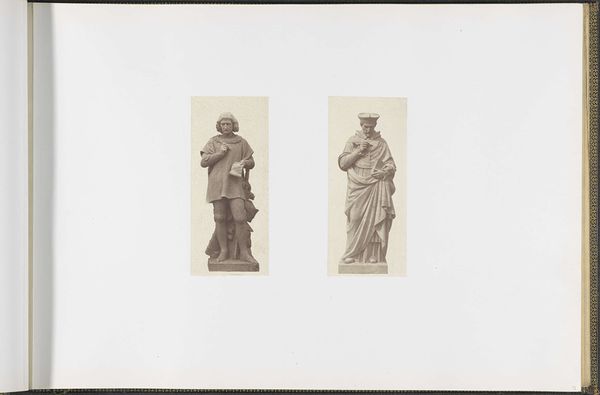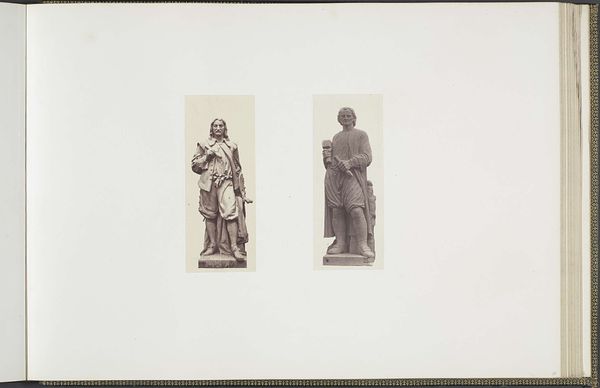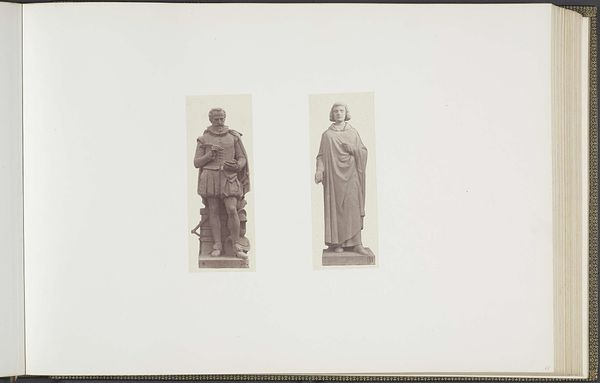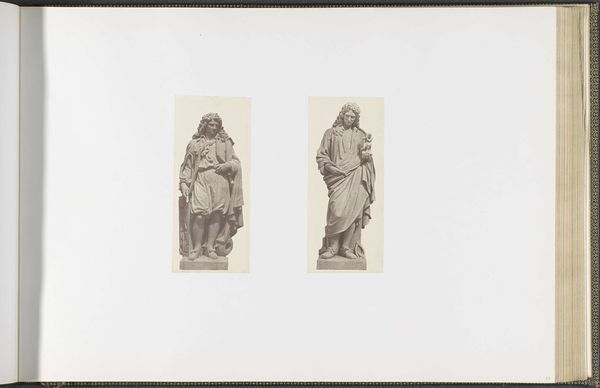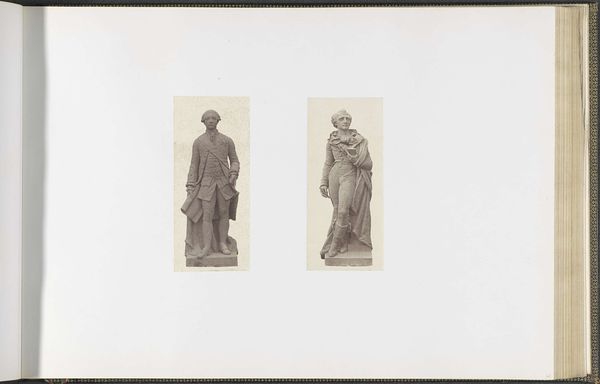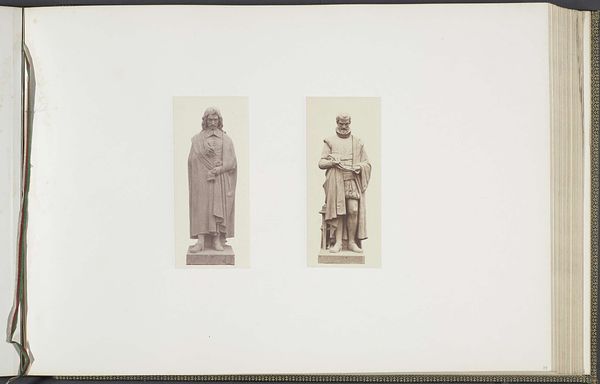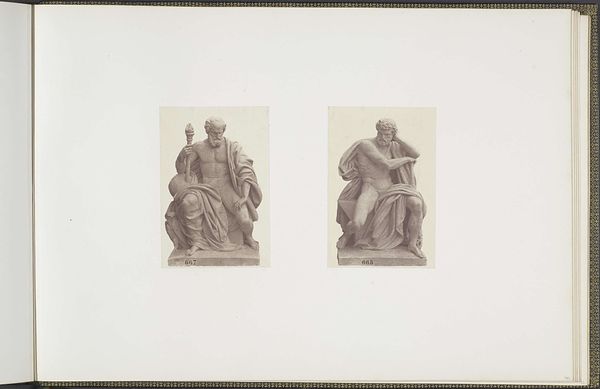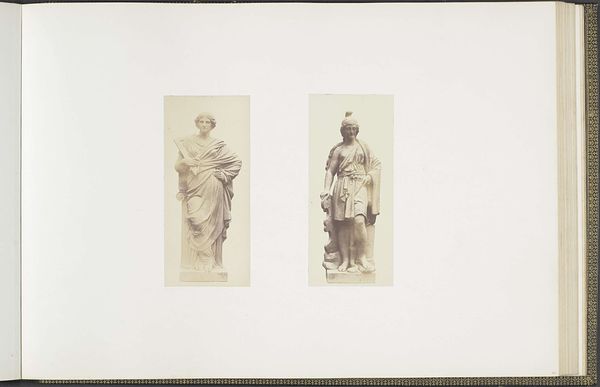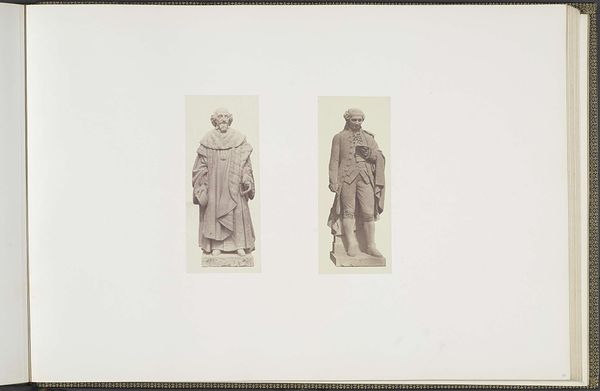
Gipsmodellen voor beeldhouwwerken op het Palais du Louvre: links "Boileau" door Gabriel Bernard Seurre en rechts "Fénelon" door Jean Bonnassieux c. 1855 - 1857
0:00
0:00
edouardbaldus
Rijksmuseum
print, bronze, photography, sculpture
#
portrait
#
neoclacissism
# print
#
bronze
#
photography
#
sculpture
#
academic-art
Dimensions: height 378 mm, width 556 mm
Copyright: Rijks Museum: Open Domain
Edouard Baldus captured these plaster models for sculptures at the Palais du Louvre with photography, a relatively new medium at the time. On the left, we see the playwright Boileau adorned in the regalia of his era; on the right, the clergyman Fénelon clutches a book, draped in classical robes. The book, an emblem of knowledge and wisdom, has been used to represent philosophers, saints and prophets throughout the centuries. In ancient Greece, scrolls held by figures like Plato symbolized intellectual authority. Christian iconography often depicts saints with sacred texts, underscoring their divine inspiration. Consider how these symbolic gestures reappear across time, echoing through different cultures. These motifs aren’t merely aesthetic choices; they're a conduit for collective memory, tapping into a deeper, shared understanding. The act of holding a book seems simple, yet it powerfully engages us. As it evolves, it continues to signify the enduring quest for knowledge, a journey that binds humanity across epochs.
Comments
No comments
Be the first to comment and join the conversation on the ultimate creative platform.
